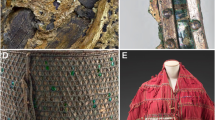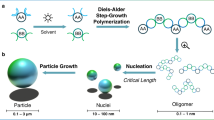Abstract
MR. F. J. CHESHIRE'S letter in NATURE of March 30 recalls the most exceptional character of the publication by Prof. Abbe and the firm of Zeiss of that discovery of apochromatism for which all must still be grateful. For the details I refer to the Journal of the Royal Microscopical Society, ser. 2, vols. vi., vii., 1886–7. An article in vol. vi., p. 315f, “The New Objectives”, is evidently based on the letter of Prof. Abbe of March 4 (cited by Mr. Cheshire), for it contains precisely the same window-dressing statement that, optical glasses hitherto in use only contain six chemical elements, while the new objective contains not fewer than fourteen. This article throughout conveys the impression that it has been alone the utilisation of new kinds of glass that has enabled Abbe to work out the conditions of practical apochromatism.
This is a preview of subscription content, access via your institution
Access options
Subscribe to this journal
Receive 51 print issues and online access
$199.00 per year
only $3.90 per issue
Buy this article
- Purchase on Springer Link
- Instant access to full article PDF
Prices may be subject to local taxes which are calculated during checkout
Similar content being viewed by others
Author information
Authors and Affiliations
Rights and permissions
About this article
Cite this article
HARTOG, M. “Optical Glass” and Fluorite: an Ethical Note. Nature 97, 180–181 (1916). https://doi.org/10.1038/097180c0
Issue Date:
DOI: https://doi.org/10.1038/097180c0
Comments
By submitting a comment you agree to abide by our Terms and Community Guidelines. If you find something abusive or that does not comply with our terms or guidelines please flag it as inappropriate.



